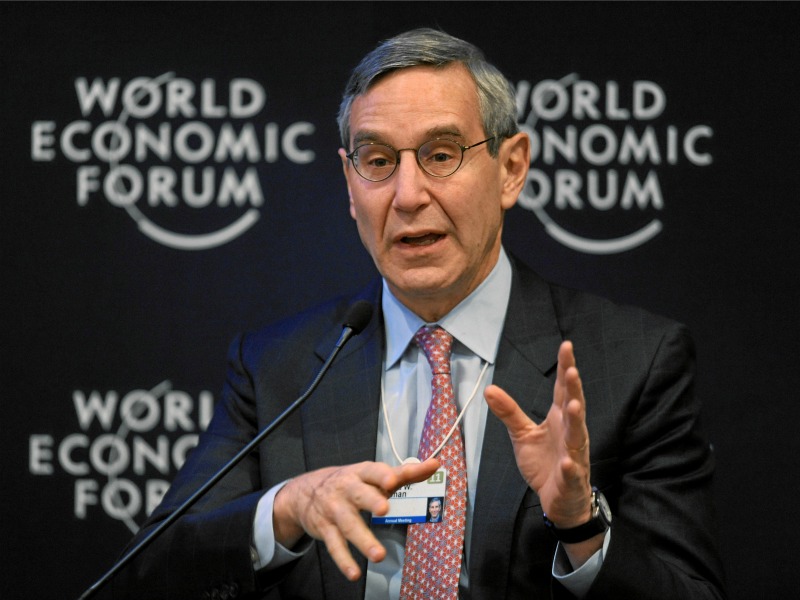Arun Sudhaman 02 Mar 2016 // 10:14PM GMT

NEW YORK — Edelman, the world's largest PR firm according to last year's Global Rankings, has reported organic growth of 7.2% for the 2015 calendar year, taking its global revenue to $855m.
On a reported basis the firm grew by 5.2%, due to the impact of a strong US dollar versus local currencies outside its home market. The firm made four acquisitions during the year — Dabo & Co in Dubai; UK firm Smithfield; German consultancy Ergo; and Position in Colombia.
The results come after Edelman grew 8.8% in 2014 to $812m, a rate of growth that held steady for its 2015 fiscal year, which ended on June 30. "What we started to observe in the second half of last year was developing markets started to fade due to economic circumstances," the firm's CEO Richard Edelman told the Holmes Report.
Commodity producing countries such as Canada and Australia, added Edelman, also slowed in the second half of the year. "I think that’s a phenomenon that’s going to last for a while."
In the US, Edelman's fees grew 7.1%, helping it cross the $500m barrier — perhaps the first PR firm to do so. Europe grew 6.3% on an organic basis to $157m, while Asia-Pacific, the Middle East and Africa were up 11.9% to $127m. Latin America expanded by 9.6% to $21m.
Canada declined 6%, which Edelman COO Matt Harrington attributed to "commodity headwinds" affecting the firm's Vancouver and Calgary offices.
Headcount increased from 5,455 to 5,849, driven by growth from consumer-facing companies — such as Unilever, SC Johnson, Mars, Kellogg and GE — and health/pharma. The firm's tech sector fees were flat, after three major clients — HP, Symantec and eBay — underwent internal splits into separate companies.
Once again, Edelman's digital business was its fastest-growing, and now accounts for 22% of overall revenue. Edelman said the digital practice had shifted from a reliance on social community management to a vertical-focused approach — focusing on such areas as "paid, customer service, influencer marketing and digital analytics."
Corporate revenues now account for the same proportion, around 30%, as the firm's consumer income, which Edelman described as a "longstanding goal."
Harrington added this trend also reflected increasing integration between corporate and brand communication. "The degree to which corporate and consumer partner has never been greater," he said. "Corporates have to manage their reputation in a brand context."
Both Edelman and Harrington, meanwhile, deflected the notion that becoming the world's first $1bn PR firm is a target. "We’re just trying to do great work for clients," said Edelman.
Instead the firm's leaders pointed to Edelman's ongoing restructuring and the corresponding investments that have been made in creative, planning and analytics. They believe this is broadening their competitive set beyond PR firms to include ad agencies, digital shops, media buying houses and management consultancies. Edelman says that this is resulting in a PR market which is "bifurcated".
"You’ve got ourselves, Weber Shandwick and Golin in 7-9% growth," said Edelman. "The rest are 3 to -6." Interpublic PR firms Weber Shandwick and Golin recently reported their 2015 results, with Weber Shandwick recording double-digit organic growth.
"The PR industry has to set its sights on the broader game of how to get into marketing spend and how to reach the CMO and not be trapped by 30% margins," said Edelman. "Or you’re forced towards public affairs and crisis and the stuff that gives you a short-term margin boost."
Edelman described the firm's investments in creative, research, entertainment and experiential, as a "great adventure."
"We’re part way across the river on communications marketing," he said. "We have a very exciting concept we are proving out. Ourselves and Weber are really trying to push this idea of a broader service capability."
The firm is unlikely, though, to sustain its rapid pace of acquisition, after emerging as the world's most acquisitive PR firm over the last couple of years. "I think what we’re going to do is make sure the ones we have are well integrated for the next 12 months," said Edelman. "If we need more skills we’ll get teams rather than make acquisitions."
That also goes for geographic expansion, where it intends to continue servicing its regions, including Africa, Latin America and Asia, from its existing footprint. Harrington noted that he expected stronger growth from markets where new leadership has been installed, including Indonesia, Malaysia, Vietnam and Mexico.
Edelman also remains bullish on Europe, where the firm has acquired four agencies in the past two years. "We’re really hoping that this counter-cyclical investment in Europe will pay off," he said. "Our client list largely is Anglo-American. Over time we need more German, French, Indian and Chinese companies."


































.jpg)
















